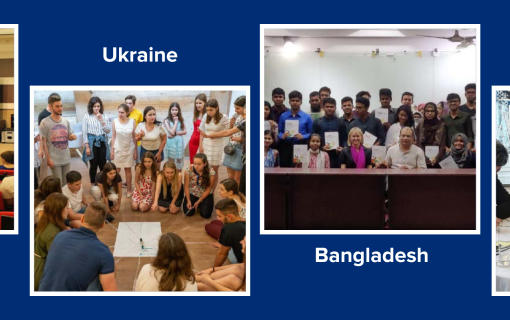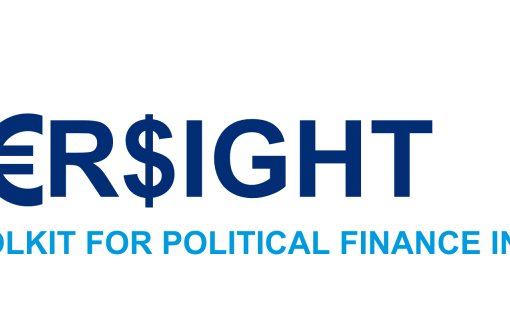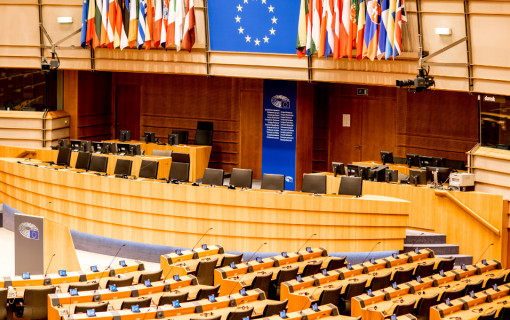Compendium of Reports on Technical Assistance to Tajikistan
EXECUTIVE SUMMARY
Tajikistan is a country in crisis. In the aftermath of the collapse of the Soviet Union, civil war erupted which left the country in severe strife. Although negotiations resulted in a cease fire, its terms are tenuous at best. Estimates suggest that hundreds of thousands of people have been displaced and scores of thousands of refugees still remain outside the country. Economic decline threatens to worsen significantly, potentially raising the specter of widespread social unrest.
It is in this environment that the government of Tajikistan, seeking to bring about stability and secure international respectability, called a special election in which voters would vote on the adoption of a new constitution and elect their president. Originally scheduled for late September, the elections were postponed until November 6, 1994 in response to pressures within the Republic and from the international community.
In answer to an invitation from the U. S. Embassy in Dushanbe, the International Foundation for Electoral Systems sent a two-member team to conduct a comprehensive pre-election technical assessment. The team was comprised first of Walter Smith, a 29-year veteran of the U.S. Foreign Service with extensive experience in the former Soviet Union and specific expertise in the region. The second member of the team was Linda Edgeworth, an expert in election law and administration with extensive experience in the international arena, including prior elections work in Kazakhstan and Kyrgyzstan.
The assignment had two parts: 1) to review the legal framework and administrative procedures which would be implemented in conducting the election; and, 2) to assess the overall environment in which the elections were to take place. Incumbent in the latter was an expectation that the team would be able to come to some preliminary conclusions as to the likelihood that the elections would conform to acceptable democratic principles. The team was also to assess the degree to which these elections might ultimately be construed to have been free and fair.
The team conducted its work in Tajikistan from September 21, through October 3, 1994. During its stay the team met with government officials, members of election commissions at the central, raion and polling site levels. Meetings were also held with officials of local executive authorities, representatives of candidates, movements and political parties, members of the media and leaders of civic organizations. The team had the opportunity to visit several raions outside Dushanbe including Varzob, Faizabad, Hissar, Tursunzade, Leninsky and Khojand.
Throughout discussions with key participants in the election process it became apparent that the government perceived an urgent need for improving their respectability with the international community. They expressed the view that adoption of the new constitution and election of a president were avenues by which Tajikistan could receive more positive recognition. This underlying motivation provided the opening which allowed the IFES team to leap the fence between strictly performing an assessment and having the opportunity to provide some immediate technical assistance.
The team's strategy was to capitalize on the experience of Kazakhstan during that country's March 1994 elections. Tajik officials were very interested in the problems Kazakhstan had encountered in their first elections under a new electoral law, and how their elections had been evaluated by the international community. Using the Kazakhstan experience as the basis of discussions, government officials recognized that a number of issues which came under fire in those elections would also relate to Tajikistan's electoral system.
The second part of the team's strategy was to focus its technical assistance objectives on improvements which were still achievable prior to election day given the current legal and administrative frame work, the crisis environment, and the constraints of time and resources. Full recognition was given to the fact that ideal conditions simply could not be achieved by election day. Prior to November 6, flaws in the law would not be amended. There was insufficient time for new or existing political parties to sufficiently strengthen their organizations and sphere of public support. Nor would there emerge a totally free and independent press. However, two major elements of the election process were still to follow: 1) the campaign period; and, 2) election day itself including the processing of voters, casting of ballots, counting of votes and reporting of results.
Therefore, the IFES team concentrated its technical assistance on these elements. All in all, 26 pages of procedural recommendations were prepared, translated into Russian and discussed with election officials. Each component was designed to improve the security and accountability of the system, enhance administrative efficiency or provide a greater degree of transparency for the process. The ultimate goal was to strengthen the foundation on which the election could achieve at least a minimal degree of fairness deserving of public confidence and international acceptance.
In the report that follows, the IFES team provides a brief history and analysis of the social and political environment which currently exists in Tajikistan. The team has also attempted to assess the status of the Republic's relationships with its neighbors and other members of the international community and their influences on recent events. The legal and administrative structures underpinning the election process are discussed, as are the weakness and strengths of the election system itself. The report includes a discussion of the team's general findings and recommendations relevant to the November 6 elections as well as to future assistance which might be warranted as Tajikistan prepares for its parliamentary election anticipated late in 1994.
Read the full report.









